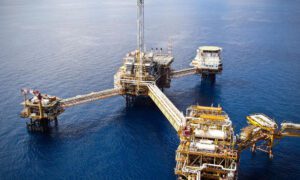


Galvanising local technology for Nigeria’s industrialization
It is now of public concern or rather disturbing that Nigeria at sixty three has not started its journey towards industrialisation.
Sixty three years down the line, the nation is still grappling with teething problems, such as poor electricity infrastructure, poor road networks, poor housing schemes for its citizens, unemployment, poor health care services etc.
Some well-meaning Nigerians are not bothered that the country is not industrialised at sixty-three, but they are more concerned that at sixty-three, the country has not started planning for industrialisation.
India, Singapore, Indonesia, the United Arab Emirate (UAE) used to be far behind us in everything, politically, economically, socially but today, Nigeria cannot tie the shoelaces of the aforementioned countries. Once, we were all categorised as third world countries, but the level of degeneration experienced in Nigeria qualifies it for a new, baser category.
Nigerians now move in droves to these countries for either medical tourism, pilgrimage, all the while, spending hard currencies for this purpose. No surprise then, the weakness of the naira. There was a period when Indian masters degree was Nigeria’s first degree equivalent, but today Nigerian PhD is now equal to Indian’s first degree. A plot twist of fate!
It all boils down to poor leadership and bad governance.
The Ajaokuta Steel industry project, meant to produce raw materials for effective economic development and industrialisation of the country, remains uncompleted several decades after it was started.
Three/four imported refineries built by the colonial masters on the heels of their departure have deteriorated under our watch and the Government seems helpless in resuscitating them. And if the refineries had become unrepairable based on their ages, why have new ones not been built instead of resorting to importation of refined petroleum products.
This singular policy has thrown the country into penury, as some self-centered Nigerians with their cohorts have hijacked the process to milk the nation dry over these years.
No wonder a litre of fuel now costs over N700, as against N145, a cup of rice now sells at N500, a bottle of kerosene now goes for over N1000, among others. To worsen the situation, over N1,500 now exchanges $1 in a country where 75K used to exchange $1 and still counting.
War-torn Ukraine has volunteered to supply grains to Nigeria, a supposedly peaceful country. The irony of the Nigerian condition is astonishing.
It is our considered opinion that all research findings churned out from the nation’s tertiary institutions, especially the universities should be collated for purposeful scrutiny and onward utilisation towards our industrialisation.
It has been said over and over that no nation can develop more than its education sector. Reason being that the drivers of the development of industrialisation are educationists.
We also suggest that intentionally, the country should hold a confab with academics and think of the best way to industrialise the country. It does not take rocket science for any society to develop, even if it does Nigeria as a country should be equal to the task.
A country with over one hundred million people should be qualified for such a challenge. As it is now 50% of our daily petroleum products are allegedly produced by artisanal refineries, commonly referred to as kpofire. Why is the Government hesitant to look in that direction and approve or legitimise that subsector? This is in the context of turnaround maintenance of our old refineries being a thorn in our flesh.
This is where leadership comes in. It makes no sense that a country of over one hundred million people cannot cultivate food to feed its citizens. We go to Malaysia, Singapore and other smaller nations for food. And we seem to be comfortable with that. Hunger, poverty breed crime. Insecurity cannot be extinguished without fulfilling the most crucial needs per Marslow’s hierarchy. But as it is currently, that will be difficult or even impossible.
Good governance or leadership is of course a product of free and fair elections. Politicians should allow Nigerians to elect their leaders, so that they can still remove them if the need arises. Anything short of that is unacceptable in a civilized society like ours. It is important to re-emphasise that the development or industrialisation of every country lies on its sound polity.
Electoral offenders need a public, shameful prosecution and conviction by our courts to serve as a deterrent to others. That is the way to go. The Asian Tigers have done their best to solve this problem. The method is simple: when politicians finish their tenure, they are usually put to probe and if found wanton, a hangman awaits them.
Nigeria should not be an exception, for as long as corruption continues to be the order of the day in determining issues, we will remain a dwarf in the comity of progressive nations. But God forbid! We must therefore walk the talk for a better country. Time for action is now!


